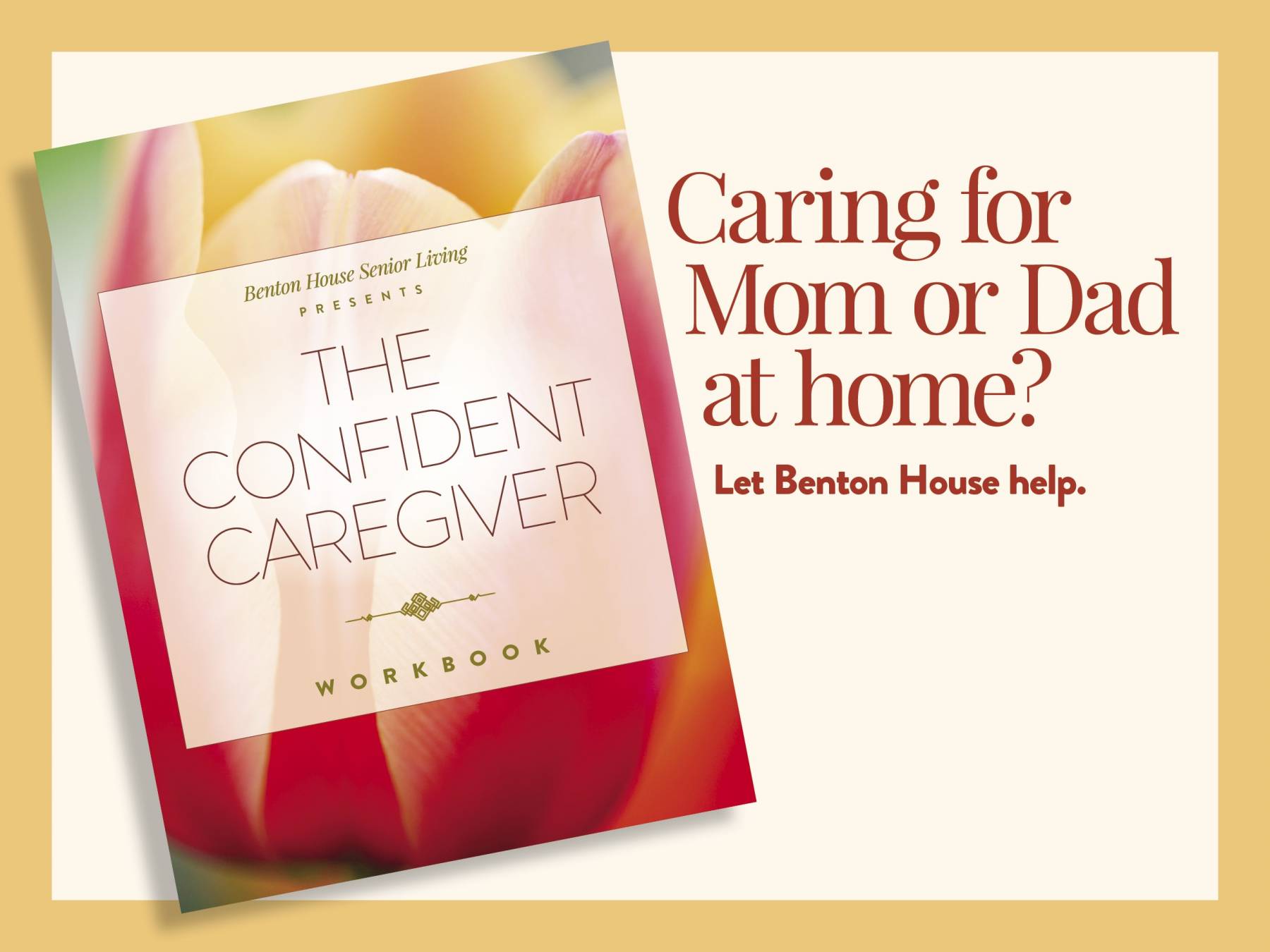The winter holiday season brings a blend of merriment, nostalgia, and cinnamon-spiced desserts.
If you look after senior loved ones who live at home, though, getting through the holidays can require extra effort and energy. You might feel the silent, creeping onset of caregiver stress.
While there are often factors that are out of your control, we want to offer you some tangible ways to support yourself where you can. This way, you can enjoy more of the magic of the season.
Understanding Caregiver Stress
From exhaustion to anxiety to lack of concentration, there are several ways caregiver stress can show up. Stress looks a little different for everyone, and unfortunately, some of the best, most generous, and giving caregivers are very good at ignoring the signs.
In fact, it’s not uncommon for caregivers to miss or ignore signs of stress until full-blown burnout sets in. But it doesn’t have to be that way.
The earlier you can identify that you’re experiencing caregiver stress, the better chance you have of avoiding burnout.
In this article, we’re focusing in particular on the stress that informal caregivers often experience, as distinct from those in the formal or medical professions. You’re an informal caregiver if you’re voluntarily caring for a senior loved one who requires particular attention.
Caregiver Stress During Holidays
An AARP survey found that about seven in ten caregivers report experiencing emotional stress due to caring for their senior loved one during the holiday season.
If you’re a caregiver, of course, that’s no surprise.
You already know the winter holidays tend to add extra responsibilities. When you add in the seasonal shopping, decorating, and cooking to your already long to-do list, it’s nearly impossible not to feel confronted with heightened levels of fatigue and overwhelm can result in neglecting your own needs.
We’ll be honest with you: in our personal and professional experience, it’s nearly impossible to avoid a little extra stress over the holidays when you’re a caregiver.
But you can absolutely reduce the chances of this situational stress leading to burnout. Let’s walk through our best tips on setting you and your loved ones up for a lighter, sweeter, more joyful holiday season.
Setting Boundaries and Priorities
Holiday traditions are dear, but they shouldn’t come at the expense of your well-being.
Know Your Limits
Recognize when you’re stretching yourself too thin and understand that it’s okay to say no.
It’s perfectly fine to decline an invitation to the neighborhood Christmas party if you’re feeling (or even anticipate feeling) stretched.
Communicate Your Boundaries
The truth is, your loved ones may not actually know what you’re feeling unless you tell them. Consider explaining to your family ahead of time why you might skip certain traditions this year, such as baking dozens of cookies or hosting the big family dinner.
Prioritize Holiday Activities
You don’t have to do it all. Decide which traditions or activities feel essential to you and your loved ones, and which ones you can forgo or simplify this year. Choose to attend a carol service, for instance, but maybe forgo the bustling Christmas market.
Embracing Help In the Holiday Rush
Studies show that most caregivers experience significant barriers to asking for help from both informal and professional resources.
From feeling like others won’t really understand to simply being too stressed and overwhelmed by caregiving itself to find the energy to ask, there are countless reasons you might feel like asking for help isn’t an option.
We hear this over and over, and if you take away only one thing today, please know that you don’t have to be in this alone.
Here are three ways to stretch your delegating muscles this holiday season.
Consider External Assistance
What kind of outside support is within your means and would feel most helpful to you this season? Perhaps you arrange regular weekly afternoons for your senior loved one at adult daycare for the height of the season to give you reliable time slots to run errands, socialize, or simply rest. Maybe you’d love temporary in-home support for more specific purposes, like a compassionate friend or healthcare worker to help your senior loved one write and send holiday cards.
Engage Family Members
What about your family? Perhaps you’ve taken most of the caregiving burden for your aging parent or loved one. While this may feel more manageable during the rest of the year, it’s likely that during the holiday you’ll need an extra hand.
We recommend being direct with family members. If you’ve decided you do want to still host that holiday dinner, that doesn’t mean you need to be solely responsible for pulling it off. Be clear about how family can pitch in, and ask for the help you’d like, whether it’s organizing the holiday dinner or decorating the living room.
Community Resources
Many communities host activities and programs during the holiday season that can offer your senior loved one invaluable social connection time.
Perhaps they’d love to remain involved in their church’s winter activities or they’d like to meet a friend at their local community center’s potluck. All they’d need from you is support with transportation – and this is a task you can choose to delegate!
Prioritizing Self-Care
Remember that self-care isn’t selfish—it’s essential.
Schedule Breaks and Down-Time
Are you the type to get to the end of a day or even a week and realize you haven’t taken a break? We see you, and we implore you: schedule rest. Really.
When you plan your week, honestly consider when you can squeeze in time to slow down or pause. Schedule mini-breaks every day to help refill your cup and enjoy the festive season, like a brisk evening walk to see your neighbors’ Christmas lights, or a peppermint latte as you’re running errands. In addition, plan for more intentional downtime as often as you can, like a solo holiday movie date or a quiet night of reading at home.
Maintain Physical Health
Eat the holiday treats, obviously! Gingerbread cookies are good for the soul. Just make sure you nourish yourself in the same way you’re nourishing your senior loved ones.
You know what self-care works best for you, but cold winter walks, yoga classes, or any other physical activities that help you de-stress should be near the top of your priority list, too.
Emotional and Mental Wellbeing
One thing cold winter days have going for them: they’re the perfect background for the kinds of quiet, contemplative moments your mental health will thank you for. Sit by a crackling fire with your best friends. Admire a snowfall from inside with a cup of hot cocoa.
Want something science-backed? Consider Mindfulness-Based Stress Reduction, which is proven to improve overall mental health, reduce stress, and decrease depression associated with caregiving for family members with dementia.
Simplify Festive Traditions
Holidays don’t need to be extravagant to be memorable.
Re-evaluate Traditions
The truth is that bigger, more complicated celebrations are not only exhausting to plan, but they can also be overwhelming for family members with dementia. For example, instead of elaborate holiday dinners, consider simpler meals or even catering options.
Create New Traditions
Choose easy activities like watching a holiday movie together or baking a family-favorite dessert. For something extra memorable, consider facilitating a low-key holiday story sharing evening for grandchildren to get to know their grandparents better.
Stay Present
Sometimes, it’s just about slowing down and appreciating what’s already there. Cherish the warmth of a lit menorah or the twinkle of Christmas tree lights with your loved ones.
Organizing the Holiday Season
A bit of forethought can alleviate many potential stressors.
Create a Schedule
Balance during the holidays may well be a myth, but it does help to at least be honest with yourself about how much you have going on! Planning ahead to make sure you have enough time for gift shopping, festive meals, and holiday events can help the season feel more manageable.
Holiday Financial Planning
It’s true, holiday costs can add up. Budget not just for gifts, but also for potential caregiving expenses, like a little extra support if you can swing it.
Emergency Plans
It’s always helpful to have a contingency plan, or even just save yourself from future stress by acknowledging that not everything will go 100% as planned… and that’s okay. There will always be a last-minute holiday mishap or a snowstorm that delays family travels.
Extra Seasonal Support Systems
Support is paramount.
Support Groups
Many caregivers find solace in sharing their experiences with others. Local and online caregiver support groups can be invaluable, and the winter holidays are a good time to remember you’re not alone.
Professional Counseling
There is strong evidence that cognitive behavioral therapy can help relieve the stress that informal caregivers often experience.
Finding a therapist you like can offer you an invaluable layer of support during the potentially stressful holiday season.
Holiday Dates with Your Friends
Maintaining friendships and staying connected can offer a mental reprieve from caregiving duties, and the business of the winter holidays make this kind of connection even more important.
Share a holiday coffee with friends or other caregivers to vent in a safe space, support each other, and laugh as much as possible—we all know it’s the best medicine.
Next Steps
The holiday season is beautiful in many ways. It’s also invariably a challenging time for caregivers.
But you don’t have to be in this alone. Ask for help from family, friends, or trusted professionals.
Our holiday wish for you is to give yourself as much tender loving care as you offer your senior loved ones.
You can always get compassionate, tailored support from us in one of these three easy ways — all completely free.
- Visit our support page to request your complimentary Caregiver Workbook.
- Call our Caregiver Hotline for free custom support at 855-461-2552. All questions welcome.
- Send us a message describing how we can support you. Choose whether you’d like us to reach out: text, email, or snail mail.
There is no charge for these services. They’re simply an extension of our mission to help every family who calls.




